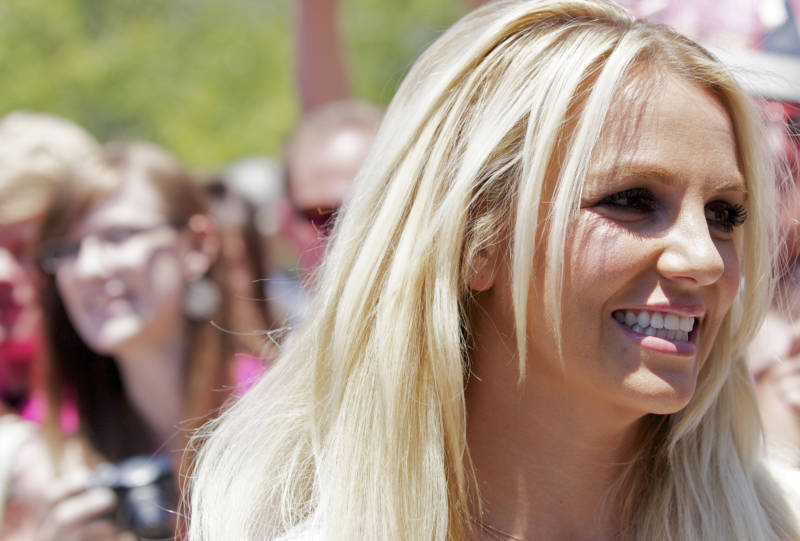Where were you when Britney Spears shaved her head?
It wasn't exactly a world-changing event, but for many of us, it was certainly memorable. I happened to be in San Francisco's Bill Graham auditorium, interviewing bands at the Taste of Chaos festival. I remember because Britney's new 'do was all anyone—bands, fans, roadies—could talk about. Which is pretty weird for an emo-rock festival, but a solid indicator of just how obsessed everyone was with her meltdown.
Twelve years ago, there was a ferocity attached to how Britney's mental health issues were consumed by the world that is disturbing to look back on. Photos of Brit in hollow-eyed crisis—in the barber shop, with the umbrella, handcuffed to that gurney—were splashed across tabloids and newspapers for our entertainment. Footage of her leaving her home in an ambulance, escorted by a number of police vehicles, is nothing short of grotesque—a sea of photographers, busy-bodies and fans blocking the street as emergency services attempt to get her to hospital.
We laughed at him at the time (some people still do, actually) but before his infamous "Leave Britney alone!" meltdown, superfan Chris Crocker made a lot more sense than you probably remember. "I know it's hard to see Britney Spears as a human being," he said, "but, trust me, she is. She is a person, just like you or I... What really bothers me is thinking of those people out there who don't see her as a person."
Fast forward to the present day and Britney has been in a mental health facility for most of this month, purportedly to help her cope emotionally with the ailing health of her father, who has been her conservator since 2007. Brit has been seen in public only once since, photographed leaving a Beverley Hills hotel looking more disheveled than we are accustomed to these days. While the snaps made it onto gossip websites, and TMZ claimed that a new "cocktail" of prescription drugs prompted her new fragile state, for the most part, coverage—or lack thereof—is in stark contrast to how Britney was treated the first time around.


